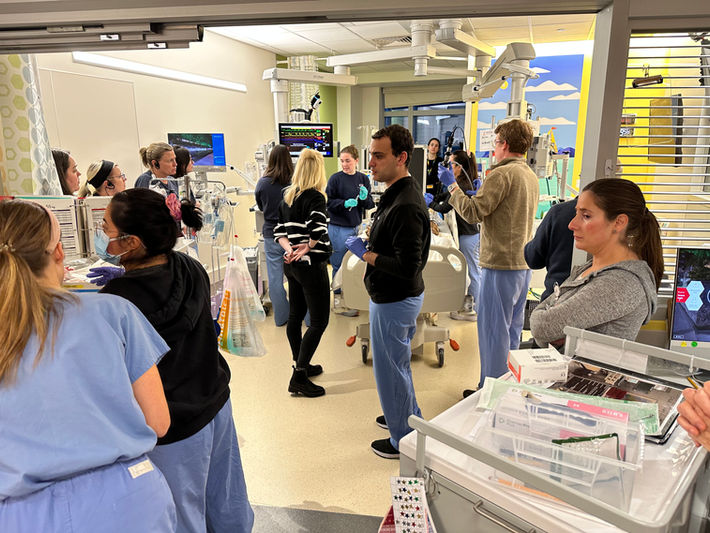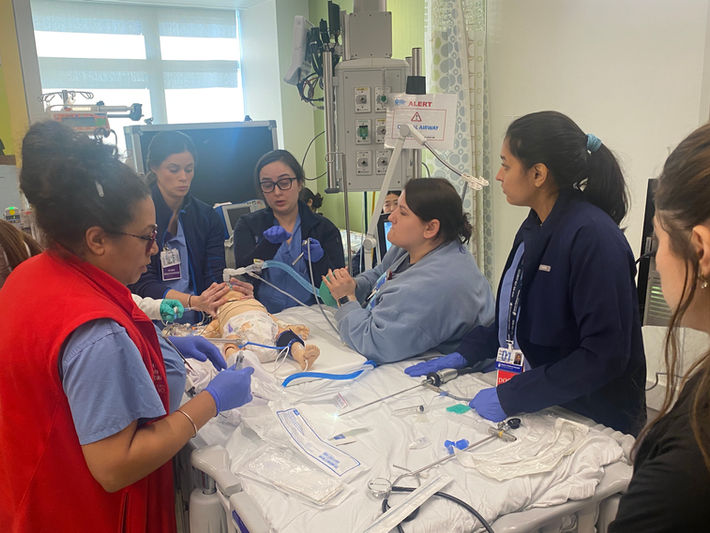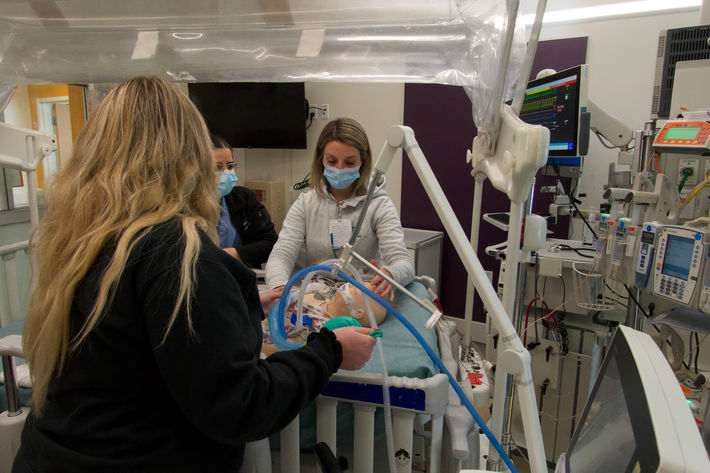CICU/ORL
(Cardiac Intensive Care Unit/Otolaryngology) Course
Cardiac-ORL Collaborative Simulation


CICU/ORL Simulation Course
The CICU/ORL Simulation course is a collaborative effort between the BCH pediatric Cardiac Intensive Care Unit (CICU) staff—including intensivists, nurses, and respiratory therapists—and the Otolaryngology service. The primary objective of this course is to enhance patient care within the CICU, with a specific focus on managing airway emergencies in critically ill pediatric cardiac patients. The course occurs in situ, within the CICU.
Educational Goals
-
Facilitating Exchange of Perspectives: Foster dialogue between the CICU and Otolaryngology teams regarding the clinical challenges of managing airway emergencies in cardiac patients.
-
Practicing Crisis Resource Management (CRM): Provide opportunities for participants to practice CRM principles, focusing on communication and teamwork skills.
Simulation is the ideal method to achieve these educational goals, as it mirrors real-life airway emergencies where participants’ experience and training levels can vary significantly.
Participants
-
Intensivists: One Fellow or attending per course.
-
CICU Nurses: 4-5 nurses ranging from first-year nurses to experienced ICU nursing managers per course.
-
Respiratory Therapist: One per course.
-
Clinical Assistant: One per course.
-
Otolaryngologists: One pediatric ORL fellow and one otolaryngology resident per course.
Latent Safety Errors
An additional aspect of the simulation is the detection of latent safety errors. In the CICU setting, this has primarily involved the availability and usability of equipment in the emergency airway carts. Over time, this activity has significantly improved the organization and completeness of these carts, enhancing overall patient safety.
By addressing these objectives and incorporating varied levels of trainee experience, the CICU/ORL Simulation course aims to improve patient outcomes through better preparedness, communication, and teamwork in managing airway emergencies in pediatric cardiac patients.
The sessions involve a didactic portion and two scenarios followed by detailed debriefings.
The courses are given 3 to 4 times per year and run in the morning between 7:30 and noon.
Course Directors
Dot Beke
Toni Imprescia
Cailyn Rood
Ravi Thiagarajan
Mark Volk
Co-Facilitators
Christine Gallagher
Catherine Mareiro
Caroline Morin
Colleen O’Shaughnessy
Sonia Almeida Santos
CICU/ORL Simulation Gallery
Click on the picture to expand.


















